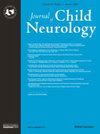在儿科线粒体诊所的初次就诊中使用就诊前调查问卷:家长、专科医生和临床协调员的观点
IF 2
4区 医学
Q3 CLINICAL NEUROLOGY
引用次数: 0
摘要
研究目的在这项研究中,我们对线粒体亚专科门诊转诊进行初步评估的儿童进行了诊前问卷的实用性评估。我们探讨了家长的问题、担忧和目标等主题。我们旨在从家长、专科医生和临床协调员的角度,补充有关儿科专科诊室诊前问卷有用性的现有知识。调查方法我们招募了 25 名患者及其家长,历时 25 个月。问卷由家长、临床协调员和线粒体专家共同完成。采用描述性统计和主题分析总结结果。结果:家长的回答表明,他们最关心的是孩子的临床问题、沟通、语言和发育迟缓、疾病进展和预后、对线粒体疾病的了解、生活质量以及包括肌肉和能量问题在内的身体挑战。家长们认为,就诊前的问卷调查对医生和他们自己都很有帮助,可以为就诊做好准备。专家和临床协调员也认为问卷很有帮助。家长们的意见表明,他们认为写下孩子的生活故事对医疗服务提供者很有帮助,让他们有时间进行思考,并改善了就诊体验。有些家长则认为这是一项困难或多余的活动。结论家长通常很乐意填写就诊前问卷。这使他们能够强调关注的问题,并分享他们希望护理团队了解的有关孩子的信息。我们根据家长和专科医生的反馈意见对该工具进行了修订,并将继续在诊所中使用。本文章由计算机程序翻译,如有差异,请以英文原文为准。
Using a Previsit Questionnaire for Initial Visits in a Pediatric Mitochondrial Clinic: Perspectives of Parents, a Specialty Physician, and a Clinical Coordinator
Objective: In this study, we assessed the usefulness of a previsit questionnaire for children who were referred for an initial evaluation in a mitochondrial subspecialty clinic. We explored the themes regarding parent's questions, concerns, and goals. We aimed to add to existing knowledge about the usefulness of previsit questionnaires in a pediatric specialty setting from the perspective of parents, the specialist, and the clinical coordinator. Method: We enrolled 25 patients and their parent(s) over 25 months. Questionnaires were completed by the parent(s), the clinical coordinator, and the mitochondrial specialist. Descriptive statistics and thematic analysis were used to summarize results. Results: Parental responses suggested that they are most concerned about their child's clinical problems, communication, language and developmental delays, disease progression and prognosis, understanding mitochondrial disease, quality of life, and physical challenges including muscle and energy problems. Parents felt the previsit questionnaire was very helpful for both the doctor and for themselves to be prepared for their visit. The specialist and the clinical coordinator also found it to be helpful. Parental comments suggested that they felt that writing down the story of their child's life was helpful for the provider, allowed time for reflection, and improved the appointment experience. Some felt it was a difficult or redundant activity. Conclusion: Parents were often pleased to complete the previsit questionnaire. This allowed them to highlight concerns and share information that they wanted the care team to know about their child. We revised the tool based on feedback from parents and the specialist and will continue to use it in our clinic.
求助全文
通过发布文献求助,成功后即可免费获取论文全文。
去求助
来源期刊

Journal of Child Neurology
医学-临床神经学
CiteScore
4.20
自引率
5.30%
发文量
111
审稿时长
3-6 weeks
期刊介绍:
The Journal of Child Neurology (JCN) embraces peer-reviewed clinical and investigative studies from a wide-variety of neuroscience disciplines. Focusing on the needs of neurologic patients from birth to age 18 years, JCN covers topics ranging from assessment of new and changing therapies and procedures; diagnosis, evaluation, and management of neurologic, neuropsychiatric, and neurodevelopmental disorders; and pathophysiology of central nervous system diseases.
 求助内容:
求助内容: 应助结果提醒方式:
应助结果提醒方式:


